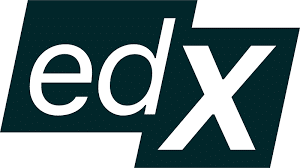Something we learnt from the pandemic was that, apart from working remotely, we could also educate ourselves online. In 2020, online education boomed as an increased number of people resorted to their computers for training since lockdowns restricted everybody from being outside. Henceforth, for many, it became the new normal and students realised e-learning was affordable compared with traditional methods.
Online education has been around for a long time, but the pandemic made it popular. Millions understood they could study whenever and wherever they wanted and rewind videos to take the same lesson as many times as they need.

Whether you are looking to learn a new skill or just hone your current ones, this type of training offers you a way to gain knowledge that might be beneficial to your present or future career.
Plenty of educational sites offer their services online, and it’s up to you to research and find the one that fits your purpose.
With this in mind, we’ll talk about different platforms that offer online courses that could help you find a new job or make extra money.
Here we go.
Today’s Focus of Attention is reader-supported. We sometimes include products we think are useful for our readers. If you buy through links on this page, we may earn a small commission.
What is Online Education?
This form of learning is based on the internet. Online courses, videos, virtual classrooms, textbooks, discussion boards, or even a complete degree programme are some of the shapes and sizes we can come across while taking online training.
One thing that makes remote education so popular, besides its costs, is that it reaches students from everywhere in the world, as long as they have an internet connection.
Some of the most favoured classes online include data science, web development, coding, and digital marketing, and are given by learning platforms, universities, or individual instructors who are experts in their fields.

Online Courses vs. Classroom Learning
I reckon it depends on the person. Both have their own characteristics; neither is better nor worse.
Online courses are the winners in terms of convenience, customisation, costs, and flexibility. You are not tied to a schedule, don’t have to drive or take public transport (and the associated costs) to attend your classes, and you can learn at your own pace. It only takes your computer, paper to write, if you want to, and a space to take your lessons.
A drawback of online training might be the sempiternal procrastination. Since you study at your own rhythm, you could decide to postpone any lesson in particular, and this “later, later” can delay your instruction for weeks or months. Be careful with that.
Many universities offer online careers with live classes via Microsoft Teams, Google Meet, or Zoom. They have the same benefits as if you were physically in the classroom. You can get feedback from your instructor in real time and collaborate with your peers.
Classroom learning is a more structured environment where you can interact with your tutor, get immediate feedback too, talk to your classmates, and for many, this connection is important given that it keeps them motivated and engaged.
It’s up to you to decide which one is best. Just consider your budget, schedule, and learning style.
Can Online Courses Get You a Job?

They are fast and give you the skills and knowledge employers are looking for.
Something positive about e-learning is that an employer can see you are committed to your personal growth, self-improvement, time management, and problem solving – qualities attractive to companies.
If you have an online course on software or coding and you’re good at it, you might land a job in no time.
But it will depend on whether your intention is to apply for a place after you finish your training. Some people take online courses only to hone their skills in a specific field.
If the purpose of the course you’re taking is to get a new job, the recruiter might ask you for previous expertise in the field, so it would be better to work in a place where experience is not a requirement.
What Online Courses Are in Demand?
Some coveted careers include Human Resources Analytics Manager, Employee Experience Manager, Sales Operation Associate, Marketing Manager, Content Designer, Sustainability Analyst, People Officer, Sales Development Representative, Digital Marketing Manager, and Product Operations Manager.
You are up for starting training on any of them. Some of those professions require certain qualifications, but that doesn’t mean you cannot have them in the short term.
Other jobs with high demand are those related to writing codes for software companies. Such skills can be developed faster.
A caveat: ChatGPT, Gemini, and other AIs are said to have been displacing programmers as they are faster. Check that.

Where to Find the Best Online Courses?
A large amount of sites, universities, and other educational institutions offer a wide range of low-cost training courses for everyone, from beginners to high-level professionals.
Here are some of the most famous online platforms where you can find classes to suit your needs:

Coursera offers top universities and companies courses such as business, computer and data science, and humanities.
Udemy offers the most extensive catalogue of courses, ranging from programming, SEO, photography, and design to personal development and diction.


edX is a non-profit platform founded by Harvard and MIT offering classes in the fields of engineering, computer science, business, and many more.
Khan Academy is famous for its science, physics, chemistry, and math courses. Also, this site helps students learn with exercises and quizzes.


Codecademy gives you training in programming languages such as Java, HTML/CSS, Python, and more. With its two-way coding lessons, this online training platform assists students in their learning process.
LinkedIn Learning – former Lynda – is widely known for its classes on technology, design, photography, software, and editing. Its high-quality video tutorials, interactive learning, and expert instructors set it apart from the other platforms. It also provides exclusive content, including interviews with industry professionals and curated playlists.


FutureLearn’s courses are about art, social sciences, and technology. This UK platform provides training from diverse organisations and universities.
Skillshare concentrates on writing, designing, animation, photography, as well as innovative and entrepreneurial skills.


Pluralsight has at your disposal lessons on IT, software development, project management, and inventive courses.
Treehouse’s cup of tea is web design plus mobile development.


Alison focuses on subjects related to technology, sales, health sciences, and business.
YouTube is a good place to watch thousands of free training courses. You might find YouTube videos more than enough to start a new side hustle or to hone your skills.

Can You Create and Publish Your Own Online Course?

For sure. If you are an expert in a specialised area or just want to share your knowledge and experience on a specific subject, create your own training course and show it to the world.
Most online learning platforms accept courses from people who are skilled in certain fields.
With an online course, you can earn passive income that might give you extra cash for years. Just be sure to update your material regularly to stay abreast of new technologies or processes.
Nowadays, with an avalanche of educational platforms online, training is at everyone’s fingertips, at any moment. Plus, it’s affordable. You only need to know what to study and when to start. So, don’t wait any longer and examine all the options these platforms offer. Maybe you’ll find your dream job.



6 thoughts on “The 12 Best Websites for Online Courses”